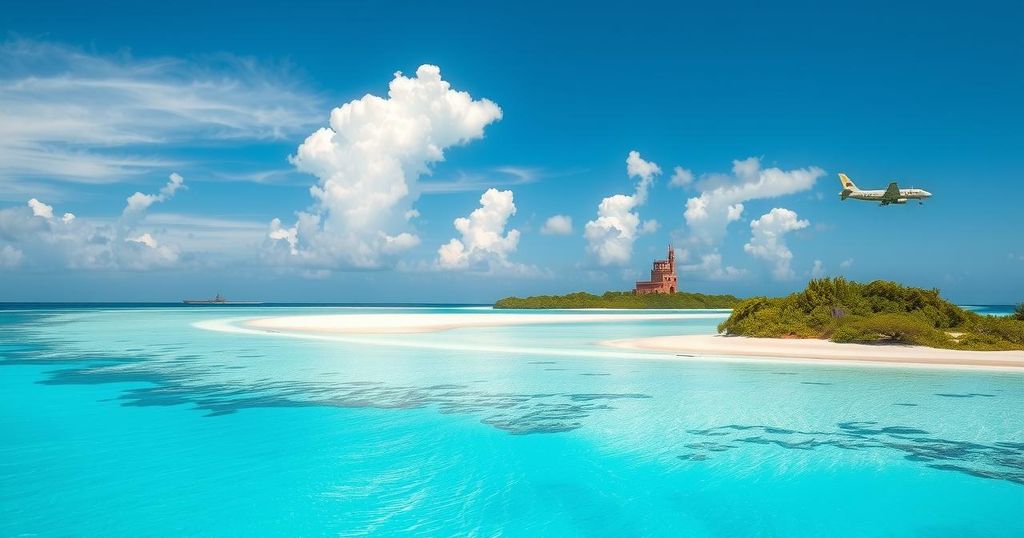UK Signs Agreement to Return Chagos Islands to Mauritius Amid Resettlement Concerns

The UK has signed an agreement returning the Chagos Islands to Mauritius after decades of disputes, maintaining a military lease on Diego Garcia while leaving unresolved resettlement issues for the displaced Chagossians. Despite a £40 million trust fund, many advocates argue it fails to adequately address the community’s needs and rights to return.
In a significant move, the United Kingdom has officially signed an agreement to return the Chagos Islands to Mauritius, concluding over fifty years of legal battles and international advocacy. This pivotal deal, finalized in May 2025, is viewed as historic. However, it raises pressing concerns regarding the right of return for the Chagossian people, a community that still grapples with the aftermath of forced displacement from their homeland.
According to the terms of the agreement, the UK will maintain a lease on Diego Garcia, a crucial military base, for 99 years at an annual cost of £101 million, amounting to a total of £3.4 billion over the lease’s span. Prime Minister Keir Starmer emphasized the strategic significance of this base for both national security and international intelligence collaboration, underscoring its ongoing relevance in the region.
Additionally, the deal has established a 24-mile exclusion zone around Diego Garcia and grants both the UK and Mauritius the authority to veto any external military presence. These provisions seem aimed at countering increasing Chinese influence in the Indian Ocean area, depicting the agreement as more than merely a territorial handover.
Nonetheless, significant criticism has arisen regarding the clarity surrounding resettlement for the displaced Chagossians. Although a £40 million trust fund has been initiated to assist the community, many observers and advocates believe it inadequately addresses the longstanding issues of marginalization that the Chagossians have faced over decades.
The Chagos Islands, located centrally in the Indian Ocean, consist of more than 60 islands and atolls. They were severed from Mauritius in 1965 by the UK to create the British Indian Ocean Territory. A mass eviction of over 1,500 Chagossians occurred between 1967 and 1973 to accommodate the U.S. military base. The evicted islanders were largely left to fend for themselves in Mauritius and the Seychelles, many of whom have since descended into poverty and continued to advocate for their rights to return.
Diego Garcia has historically played a crucial role as a military strategic point for the UK and the United States since the Cold War era. Its ongoing military operations include supports in various global conflicts, from the Gulf Wars to surveillance missions in Asia and Africa, marking it as a valuable asset for US-UK military endeavors.
The recent agreement, therefore, ensures the continued joint control of Diego Garcia by the UK and US for the forthcoming century, creating measures aimed at maintaining military supremacy in the region against the backdrop of anticipated geopolitical tensions.
Critics, however, argue that this deal digs up old wounds for the Chagossians, who remain mired in uncertainty. Previous legal efforts to secure their right to return have largely been disregarded. This latest agreement further emphasizes their lack of tangible commitments for repatriation. Advocates insist immediate actions are necessary to secure not just financial assistance but real pathways to resettlement. Political opposition has also scrutinized the secrecy surrounding the negotiations, questioning whether the agreement sufficiently safeguards the rights and needs of the Chagossian community.
The UK’s decision to transfer sovereignty over the Chagos Islands signals a larger shift in the responsibilities of former colonial powers. It suggests a willingness to confront prior injustices, potential reconciliation, and initiating dialogue that acknowledges historical wrongs. Nevertheless, for the Chagossians, the fight is far from finished. Their aspirations for both recognition and return highlight a significant gap that still exists between political resolutions and genuine, human-centered justice.
In summary, the UK has taken a historical step by agreeing to return the Chagos Islands to Mauritius after years of controversy. Yet, the deal has drawn criticism for inadequately addressing the rights of the displaced Chagossians, particularly regarding their right to return. While the financial trust fund offers some assistance, it is perceived as insufficient. As the UK confronts its colonial past, the journey for the Chagossian people continues, with lingering questions of equity and justice still unresolved.
Original Source: www.ibtimes.co.uk








